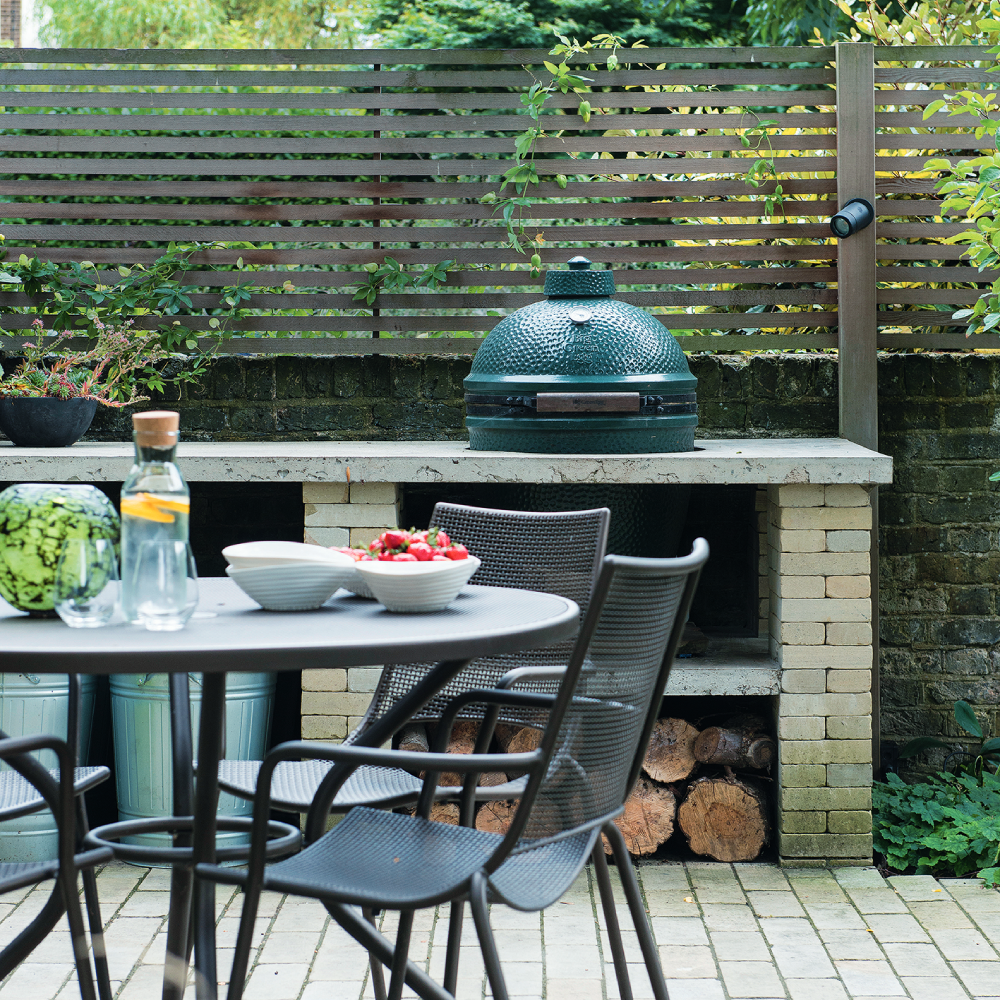How to prevent a home fire - what causes them and how to keep your house fire safe
Experts share the most common causes of fires, how to tackle them and practice fire safety at home
Sign up to our newsletter for style inspiration, real homes, project and garden advice and shopping know-how
You are now subscribed
Your newsletter sign-up was successful
Home fires, unfortunately, are still a daily reality in the UK, with the Home Office statistics for 2018-19 recording 36,283 dwelling fires. While this is the lowest number of home fires on record, this number is still high. So we have rounded up the best expert advice for how to prevent a home fire.
Don't forget the other important aspect of home safety with the best home security systems
A home fire can have a devastating effect on a property, to say nothing of the risk of injury. Fortunately, the vast majority of home fires are preventable if you practice correct fire safety rules at home.
What are the most common causes of home fires in the UK?

Cooking appliances are the most common cause of home fires by a mile. Cooking appliances caused 2340 incidents in 2018/19. In comparison, smokers' materials caused 459 incidents, and matches, which we all are taught not to play with as kids, only caused 17 incidents.
The Home Office report on home fire statistics explains that 'of the 26,610 dwelling fires with accidental causes in 2018/19, 34 per cent were caused by 'misuse of equipment or appliances,' no change from 2017/18. The second largest cause category was 'faulty appliances and leads' which caused 15 per cent of all accidental dwelling fires.' In other words, in most cases, either the appliance was used inappropriately, or it was faulty.
According to Electrical Safety First, the best ways to eliminate a home fire through the misuse of an electrical appliance is to follow these rules:
- Do not let leads from other appliances like kettles or toasters trail across the cooker
- Never use the area on top of the microwave for extra storage.
- Never dry towels on, or near, the cooker.
- Do not let fat and grease build up on or in the cooker, especially in the grill pan where it can easily catch fire.
- Make sure that you turn the cooker off when you have finished using it.
What appliances cause the most fires?
According to Electrical Safety First, cooking appliances including microwaves are the most common appliances to catch fire. They are closely followed by washing machines, tumble dryers, electrical lighting, and TVs.
Sign up to our newsletter for style inspiration, real homes, project and garden advice and shopping know-how
The most likely reason a washing machine or TV would catch fire is that the appliance is faulty, so don't ignore warning signs like parts of the device getting unusually hot (especially washing machine doors), or cables, leads, or sockets that look unsafe (blackened or with the inner wiring exposed). If there's anything at all unusual about how an electrical appliance is performing, always consult a registered electrician.
Are there seasonal patterns to home fires?

The answer may surprise you, but there's very little variation between the seasons in terms of how many home fires happen. The only exceptions are outdoor fires and chimney fires – according to the government report, summer shows a strong prevalence for the former, and winter for the latter.
'There tends to be more grassland, refuse and other outdoor fires in the summer months and these seem to reflect weather patterns. This was particularly so for the exceptionally hot and dry July 2018, which had the highest daily rate of fires for any month of any year recorded in the IRS from 2010/11 to 2018/19,' stated the government report.
While grassland fires are unlikely to affect you in your back garden, you do need to be more vigilant around your barbecue during dry weather spells. Never leave the bbq unattended until it has completely stopped smoking. Always keep a bucket of water or hose ready in case your barbecue does start a fire.
As for winter chimney and wood burner fires, Jon Butterworth, Sales Director at Arada Stoves, gives the following tips:
- Never use Petrol, kerosene, charcoal lighter fluid or other highly flammable substances to start or rekindle any fire.
- Avoid burning too much wood at a time and slumbering the flame as this can cause creosote and tar to build up in your stove and chimney, creating a fire hazard.
- Wait until the ashes are completely cool before you remove them from the stove or fire.
- Do not stack wood around a stove to dry.
- Have your chimney swept at least once a year, preferably twice.
How to tell if you have a chimney fire? Typically, you will hear a very loud, roaring noise inside your chimney, and will see huge amounts of smoke pouring from out the chimney.
Related: Five common mistakes that put your home at risk of a fire this Christmas
How to prevent a candle fire

Burning scented candles is very popular, but this trend does have a potentially risky side. In 2019, candles caused 310 home fires. And, according to the London Fire Brigade, 'In 2020, over 200 fires in London have been connected to candle use.'
That's a lot of fires in just the capital. For this reason, the LFB recommend using flameless candles instead of real candles. If you do like scented candles, always take the following precautions when using them:
- Make sure you put out any candles, incense and oil burners when you leave the room and especially before bed.
- Keep them away from flammable materials, especially curtains, furniture, and your clothes.
- Tea lights can get very hot and burn through TVs, plastic bathtubs, and other materials that are not fireproof; always enclose your tea lights in a glass or ceramic holder.
What are the basic fire prevention principles for home?
1. Check your smoke detectors
According to the National Fire Prevention Association, smoke alarms should be installed in each bedroom and on every level of the home, including the basement. Do not install your smoke alarms near windows and doors, as these can interfere with how they operate. Smoke detectors should be replaced every 10 years.
2. Keep appliances away from flammable materials
This obviously applies to cooking appliances, but you should also be aware of your portable heater's ability to start a fire. Always keep soft furnishings such as curtains and blankets well away from any portable heater and never leave it on very close to upholstered furniture or cushions. In the bedroom, do not leave portable heaters on right next to your bed.
3. Close doors
Simply closing your door before bedtime can make a crucial difference if you ever have to escape a home fire. Internal doors won't protect you from a fire for very long – but they will do so for much longer than a door that's been left open. The London Fire Brigade also recommend closing bedroom doors at night because they slow down the spread of smoke.
4. Keep a fire extinguisher or blanket in the house
Finally, every home should have a fire extinguisher and a fire-retardant blanket in the house in case of a home fire. Fire blankets are indispensable if you have a fire that involves cooking oil (never pour water over a grease fire), or in cases when a person has caught fire.
Related: Five common mistakes that put your home at risk of a fire this Christmas
Stay safe at home.
Anna Cottrell is Consumer Editor across Future's home brands. She moved to the world of interiors from academic research in the field of English Literature and photography. She is the author of London Writing of the 1930s and has a passion for contemporary home decor and gardening.